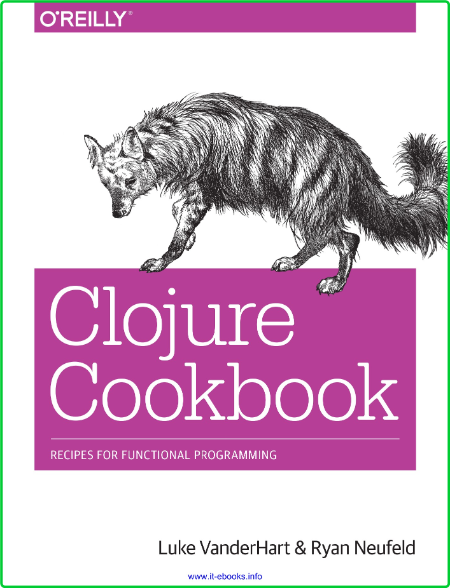
Clojure Cookbook
pdf | 9.76 MB | English | Isbn: B00IT6XZ0O | Author: Luke VanderHart and Ryan Neufeld | Year: 2014
Description:
With more than 150 detailed recipes, this cookbook shows experienced Clojure developers how to solve a variety of programming tasks with this JVM language. The solutions cover everything from building dynamic websites and working with databases to network communication, cloud computing, and advanced testing strategies. And more than 60 of the world's best Clojurians contributed recipes.
Each recipe includes code that you can use right away, along with a discussion on how and why the solution works, so you can adapt these patterns, approaches, and techniques to situations not specifically covered in this cookbook.
Master built-in primitive and composite data structures
Create, develop and publish libraries, using the Leiningen tool
Interact with the local computer that's running your application
Manage network communication protocols and libraries
Use techniques for connecting to and using a variety of databases
Build and maintain dynamic websites, using the Ring HTTP server library
Tackle application tasks such as packaging, distributing, profiling, and logging
Take on cloud computing and heavyweight distributed data crunching
Dive into unit, integration, simulation, and property-based testing
Clojure Cookbook is a collaborative project with contributions from some of the world's best Clojurians, whose backgrounds range from aerospace to social media, banking to robotics, AI research to e-commerce.
Each recipe includes code that you can use right away, along with a discussion on how and why the solution works, so you can adapt these patterns, approaches, and techniques to situations not specifically covered in this cookbook.
Clojure Cookbook is a collaborative project with contributions from some of the world's best Clojurians, whose backgrounds range from aerospace to social media, banking to robotics, AI research to e-commerce.
Category:Lisp Programming, Functional Software Programming, Object Oriented Design










